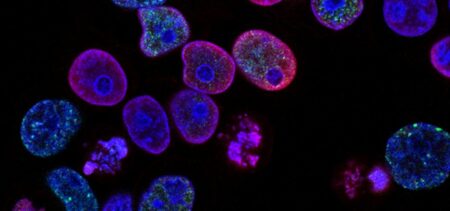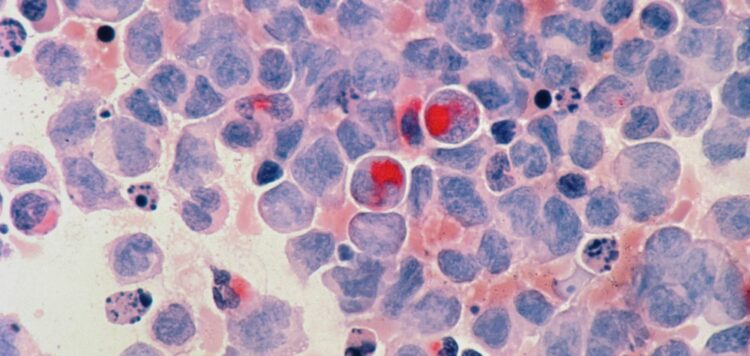According to the Mayo Clinic, cancer is a term used to describe a wide range of diseases where abnormal cells proliferate uncontrollably, infiltrating and damaging healthy tissues. Cancer can metastasize, spreading throughout the body and affecting more and more organs. Globally, cancer is now the second most prominent cause of death. However, advancements in cancer screening, treatment, and prevention have contributed to increasing the survival rates for numerous types of cancer. Even so, the world needs more vaccines against cancer, a need that has been regarded as a mere dream by scientists for decades.
The goal of developing vaccines to prevent infectious diseases stands as one of the most significant medical breakthroughs of the 20th century. However, the principles underlying vaccination extend beyond prevention alone. Recent advancements in immunology have paved the way for therapeutic vaccines (specifically designed to treat infections) to enter late-stage clinical trials. After decades of scientific work, therapeutic vaccines are finally showing promising results. These breakthroughs have been made possible through an enhanced understanding of fundamental immunological processes, leading to the development of more potent vaccine formulations.
While it has taken several decades, therapeutic cancer vaccines now demonstrate signs of effectiveness, offering hope for numerous patients who are unresponsive to standard immunotherapies.
From Preventive Vaccines to Therapeutic Vaccines
As most people already know, the onset of some types of cancer can be attributed to viral infections, making preventive vaccines crucial in minimizing the associated risks. For example, the human papillomavirus (HPV) is linked to the development of cervical cancer, as well as head and neck cancer, while the hepatitis B virus (HBV) is associated with liver cancer. Fortunately, various vaccines have been created to prevent HBV and HPV infections, consequently protecting individuals against the emergence of HBV- and HPV-related cancers. According to the Cancer Research Institute (CRI), four preventive vaccines have already been approved by the Food and Drug Administration (FDA) to protect people against cancer:
— Cervarix®: A vaccine designed to prevent infection caused by HPV types 16 and 18. It offers protection against HPV-related anal, cervical, head and neck, penile, vulvar, and vaginal cancers.
— Gardasil®: A vaccine designed to prevent infection caused by HPV types 16, 18, 6, and 11. It can prevent the development of HPV-related anal, cervical, head and neck, penile, vulvar, and vaginal cancers.
— Gardasil-9®: A vaccine designed to prevent infection caused by HPV types 16, 18, 31, 33, 45, 52, and 58. By providing protection against these strains of the virus, Gardasil-9® can also contribute to the prevention of HPV-related anal, cervical, head and neck, penile, throat, vulvar, and vaginal cancers.
— Hepatitis B (HBV) vaccine (HEPLISAV-B®): A preventive vaccine specifically designed to safeguard against the hepatitis B virus (HBV). It can help people prevent the onset of HBV-related liver cancer.
While these preventive cancer vaccines are undoubtedly vital when it comes to protecting people from developing some types of cancers, therapeutic vaccines can take the fight against cancer even further. According to the CRI, two therapeutic vaccines have already been approved by the FDA to treat people suffering from two types of cancer:
— BCG (Bacillus Calmette-Guérin): A vaccine that employs attenuated bacteria to activate the immune system. It has been approved for individuals diagnosed with early-stage bladder cancer.
— Sipuleucel-T (Provenge®): A vaccine formulated using dendritic cells derived from the patient’s own immune system. It has received approval for the treatment of prostate cancer.
Developing New Therapeutic Cancer Vaccines
According to The Guardian, leading experts suggest that a revolutionary series of new vaccines, targeting various diseases, such as cancer, cardiovascular diseases, autoimmune disorders, and more, have the potential to save millions of lives. Moderna, a prominent pharmaceutical company known for the development of a COVID-19 vaccine, has recently expressed its confidence that these vaccines will be developed and available by 2030. “We will have that vaccine, and it will be highly effective, and it will save many hundreds of thousands if not millions of lives. I think we will be able to offer personalized cancer vaccines against multiple different tumor types,” said Dr. Paul Burton, Moderna’s Chief Medical Officer.
Moderna is not alone in using the experience it gained during the COVID-19 pandemic to develop therapeutic cancer vaccines. Likewise, BioNTech and Gritstone Bio are actively advancing personalized messenger RNA (mRNA) vaccines, reigniting optimism that these treatments could boost the human immune response to fight cancer. According to the BioPharma Dive, however, the annual meeting of the American Society for Clinical Oncology has served as a platform for Moderna and its partner, Merck&Co., to unveil data on the ongoing development of their cancer vaccine, named mRNA-4157. The vaccine is currently undergoing clinical trials in combination with Merck’s Keytruda immunotherapy, which is designed for people with melanoma who had their primary tumors removed.
The good news is that both companies have recently reported that the combined administration of the two drugs resulted in a 44% reduction of the relative risk of death or cancer recurrence, compared to using Keytruda alone.





























